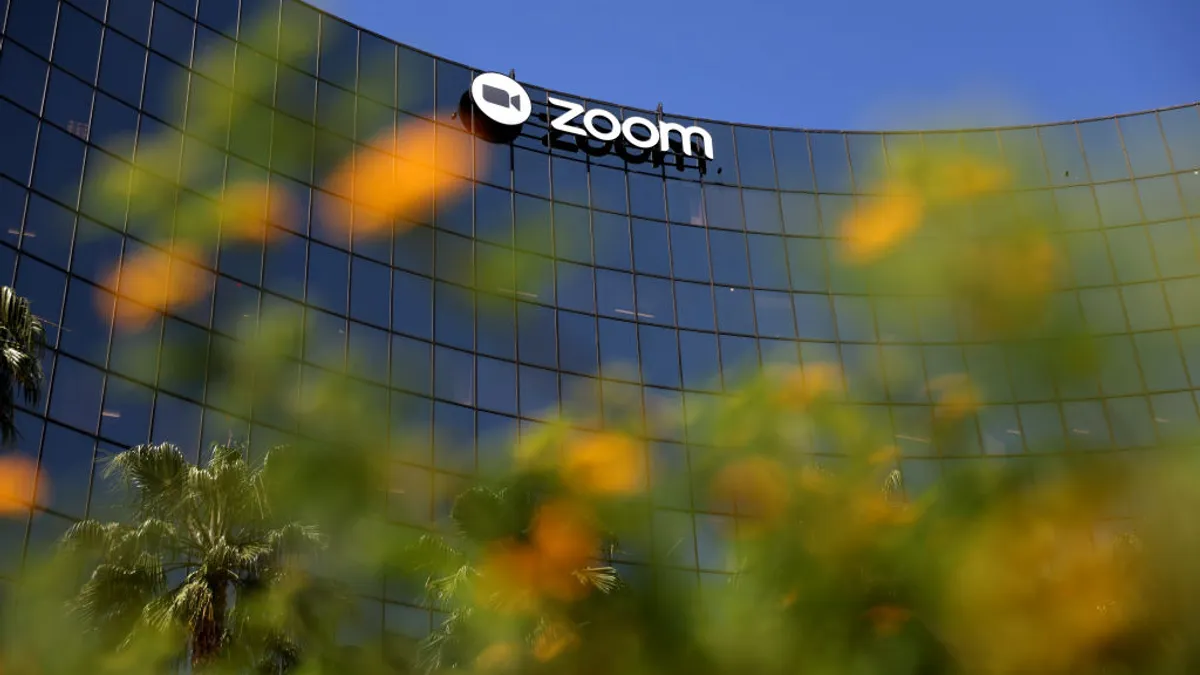With technology playing a key role in modern business strategy, C-suite leaders want seasoned CIOs with previous stints leading organizations through major digital change initiatives.
The average age of an enterprise CIO within Fortune 100 companies is 55, suggesting a preference for more experienced leaders who are equally comfortable leading business transformation as they are with overseeing technology and IT, according to Korn Ferry research.
The study, which was based on the executive search firm's data analysis of CIOs and top technology leaders at Fortune 100 companies, also found that the average tenure of a CIO was just over five years. Its findings are similar to a previous study the company carried out on Fortune 1000 CIOs in 2020, in which the average age of a CIO was also 55. Korn Ferry data from 2017, however, found that the average CIO at a Fortune 1000 company was 51.
For context, the average age of incoming S&P 1500 CEOs, according to consulting firm Spencer Stuart, was 56 last year.
The elevation of CIOs to key decision makers in the C-suite contributes to an older average age of a CIO and a longer tenure in that position, Craig Stephenson, senior client partner at Korn Ferry, told CIO Dive.
“Business leaders, CEOs and other C-suite executives, are becoming much more versatile and aware of the technology challenges and or opportunities, and as a result, we're seeing the tenure of CIOs improve,” he said. “You also have some CIOs who are now becoming business leaders … which is going to impact that tenure number.”
Others say the demands of the job, including the need to work horizontally, support the preponderance of older candidates.
“The reason why you see the CIOs at that age is they have to have that experience to really drive a change agenda, understand how to be a business partner first,” in addition to oversight of enterprise IT and digital innovation, said Joon Yoon, U.S. technology officers' practice group leader at executive search firm Egon Zehnder. “It usually takes 25 years to really build that muscle.”
The pandemic didn’t significantly influence the age demographics of CIOs, but it might have contributed to longer tenures, due to workplace flexibility arrangements introduced during that time, Stephenson said.
With an average age of 53 and a tenure of four years, financial services CIOs were the youngest and had the shortest tenures. By contrast, healthcare CIOs, who averaged 57 years of age, were the oldest among the group. With an average tenure of six years, they stayed in their jobs the longest.
Variation between fields
The healthcare industry’s slow transition to digital might explain the longer tenures and an older average age, Yoon said.
B.J. Moore, CIO and EVP of real estate operations and strategy at Renton, Washington-based health system Providence, suggested supply and demand is one reason why healthcare CIOs stay in their roles longer; healthcare’s reputation as a slow mover on technology means CIOs aren’t as frequently scouted for new roles outside the industry, he noted.
“J.P. Morgan is not going to come knocking on the door [of a healthcare firm] saying ‘Hey, we’re looking for our next amazing, innovative CIO,’” said Moore, who is 54. “If you’re in tech and you’re a top CIO, you’re getting calls every day. Your tenure is a lot smaller because the demand is greater.”
Another reason, according to Moore, might be that healthcare practitioners prefer CIOs who know the subject, and that may mean recruiting someone who has decades of experience.
Despite these factors, some healthcare CIOs may want to stay in their roles longer because of a personal interest in the field. Vincent Shorter, CIO of global medical products and distribution at healthcare distributor Cardinal Health, said the notion of ‘service’ might explain why many healthcare CIOs choose to stay in the field longer than their counterparts in other industries.
“You feel a real sense of purpose and that you're making a difference,” said Shorter, who previously served as a chief information technology officer in the U.S. Army. “It feels like when you land in healthcare, you stay.”
In financial services, like other fields, the business experience required for a large-company CIO role likely puts them at least in their 40s, said Umasankar Nistala, 50, CIO of the financial institutions group at financial technology company Fiserv. Younger CIOs are typically getting hired at fast-growing smaller companies with typically less than $200 million in annual revenue, he said.
Across a broader sample of companies, CIOs tend to skew younger, according to research from CompTIA. A 2023 IT workforce study, which included data on 518,732 CIOs and IT directors via Lightcast and the U.S. Bureau of Labor Statistics, found 62% of CIOs and IT directors were between 35 and 54 years of age.
The challenges of younger CIOs
Being younger-than-average isn’t necessarily a bar to becoming the CIO of a large firm, but lacking the right kind of experience can be, said Diego Silva, 47, SVP and CIO of Denver-based industrial manufacturing company Gates Corporation. Shorter CIO tenures, he noted, may be a reaction to market demand, with some executives wanting to seek promotions to elevate their titles or increase compensation.
What's more attractive from a hiring perspective, he said, is CIOs who can see an initiative through to completion — which often means staying for at least a few years in the same company.
“I am seeing people jumping from manufacturing to consulting to healthcare," Silva said. "There is no logic. The only logic is a title change.”
Current tech talent demand means tech workers have more chances to upgrade their titles as they move to new companies, Silva said.
"I never hire that person," Silva said. "I need somebody who really knows their stuff and I don’t want that person to join and stay for a year.”




















